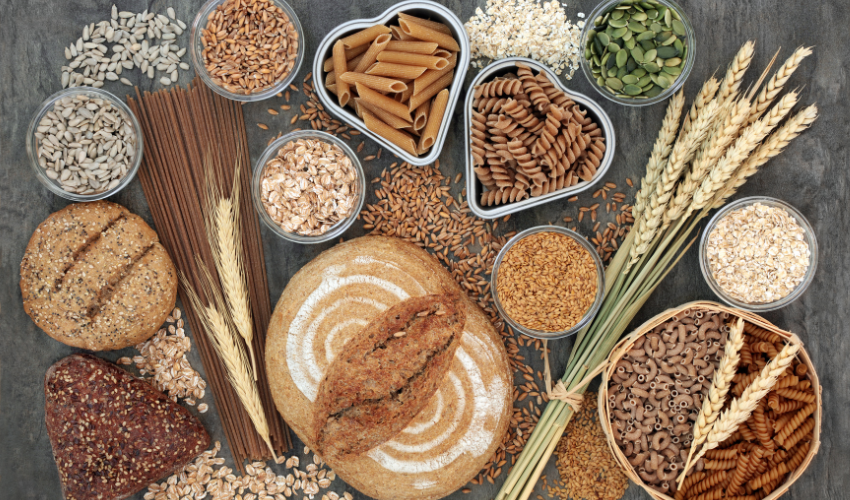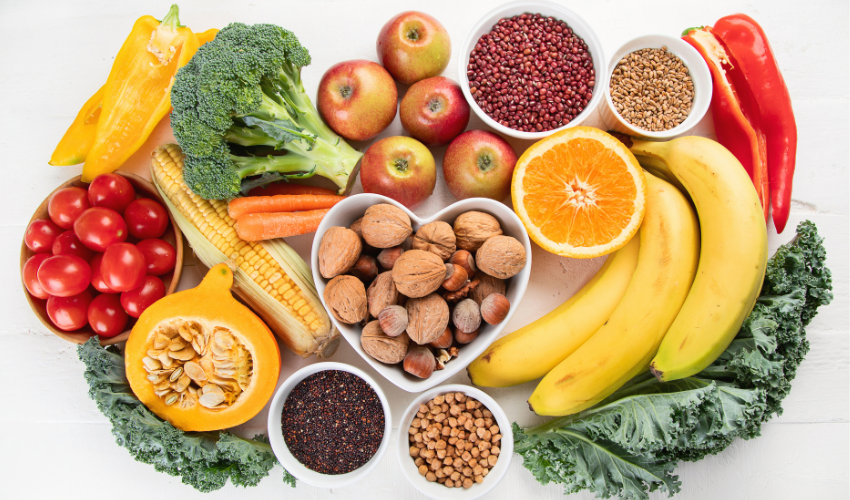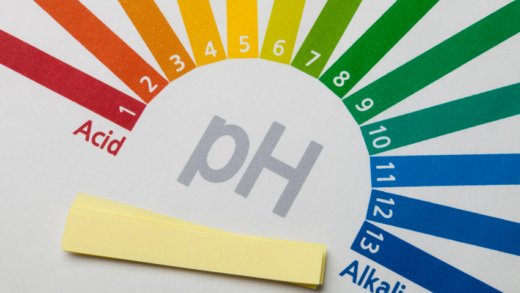We often hear the term ‘fiber’ when it comes to our diet, but do we know what it means? Dietary fiber is a type of carbohydrate that our bodies cannot digest, and it comes from plant-based foods such as fruits, vegetables, legumes, nuts, and whole grains. While it may not be digestible, it plays a vital role in maintaining our overall health and well-being. In this article, we will explore why fiber is important in our diet and the numerous benefits it offers.
Why Fiber is Important in Our Diet:
- Promotes Digestive Health:
Fiber helps promote regular bowel movements and prevents constipation. It adds bulk to our stool and prevents waste from getting stuck in our intestines, thus reducing the risk of developing hemorrhoids, diverticulitis, and other digestive disorders.
- Regulates Blood Sugar Levels:
Fiber slows down the absorption of sugar into the bloodstream, preventing spikes and crashes in blood sugar levels. This is particularly important for people with diabetes who need to manage their blood sugar levels.
- Lowers Cholesterol:
Fiber binds with cholesterol and prevents it from being absorbed into the bloodstream. This can help lower LDL (bad) cholesterol levels and reduce the risk of heart disease.
- Aids in Weight Management:
Fiber-rich foods are typically low in calories and keep us feeling full for longer periods. This can help us consume fewer calories and manage our weight effectively.
- Promotes Heart Health:
As mentioned earlier, fiber can help lower cholesterol levels, which is a major risk factor for heart disease. Additionally, a diet high in fiber has been shown to reduce blood pressure levels, inflammation, and other markers of heart disease.

Types of Fiber
There are two main types of fiber: soluble and insoluble.
Soluble Fiber
Soluble fiber dissolves in water and forms a gel-like substance in our intestines. It is found in fruits, vegetables, oats, barley, and legumes.
Benefits of Soluble Fiber:
- Helps regulate blood sugar levels
- Lowers cholesterol levels
- Promotes feelings of fullness
- Supports a healthy gut microbiome
Insoluble Fiber
Insoluble fiber does not dissolve in water and passes through our digestive system mostly intact. It is found in whole grains, nuts, seeds, and the skin of fruits and vegetables.
Benefits of Insoluble Fiber
- Promotes regular bowel movements
- Prevents constipation
- Adds bulk to stool
How to Increase Fiber Intake?

- Eat More Fruits and Vegetables:
Fruits and vegetables are rich in fiber and should be a staple in our daily diet. Aim for at least five servings of fruits and vegetables each day.
- Choose Whole Grains:
Swap refined grains such as white bread, pasta, and rice for whole grains such as whole wheat bread, quinoa, and brown rice.
- Include Legumes:
Legumes such as lentils, beans, and peas are high in fiber and protein, making them an excellent addition to any meal.
- Snack on Nuts and Seeds:
Nuts and seeds are high in fiber and healthy fats, making them a great snack option.
FAQs
How much fiber should I be eating each day?
The recommended daily intake of fiber is 25-30 grams for adults.
Can fiber supplements replace dietary fiber?
While fiber supplements can help boost our fiber intake, they should not replace fiber-rich foods in our diet. Whole foods provide us with essential vitamins, minerals, and other nutrients that we may not get from supplements alone.
Can too much fiber be harmful?
Consuming too much fiber can cause bloating, gas, and diarrhea. It’s important to increase fiber intake gradually and drink plenty of water to help prevent these symptoms.
Do all types of fiber offer the same benefits?
Both soluble and insoluble fiber offer numerous health benefits, but they work differently in our bodies. It’s important to include a variety of fiber-rich foods in our diet to reap the benefits of both types of fiber.
Can fiber help with weight loss?
Yes, fiber can aid in weight loss by keeping us feeling full for longer periods and reducing our calorie intake. However, it’s important to maintain a balanced diet and exercise regularly to achieve sustainable weight loss.
Conclusion
Dietary fiber is a crucial component of a healthy diet that offers numerous health benefits. From promoting digestive health to reducing the risk of heart disease, including fiber-rich foods in our daily diet can help us achieve optimal health and well-being. By increasing our intake of fruits, vegetables, whole grains, legumes, nuts, and seeds, we can boost our fiber intake and improve our overall health. So, the next time you plan your meals, make sure to include fiber-rich foods and prioritize your health!






















